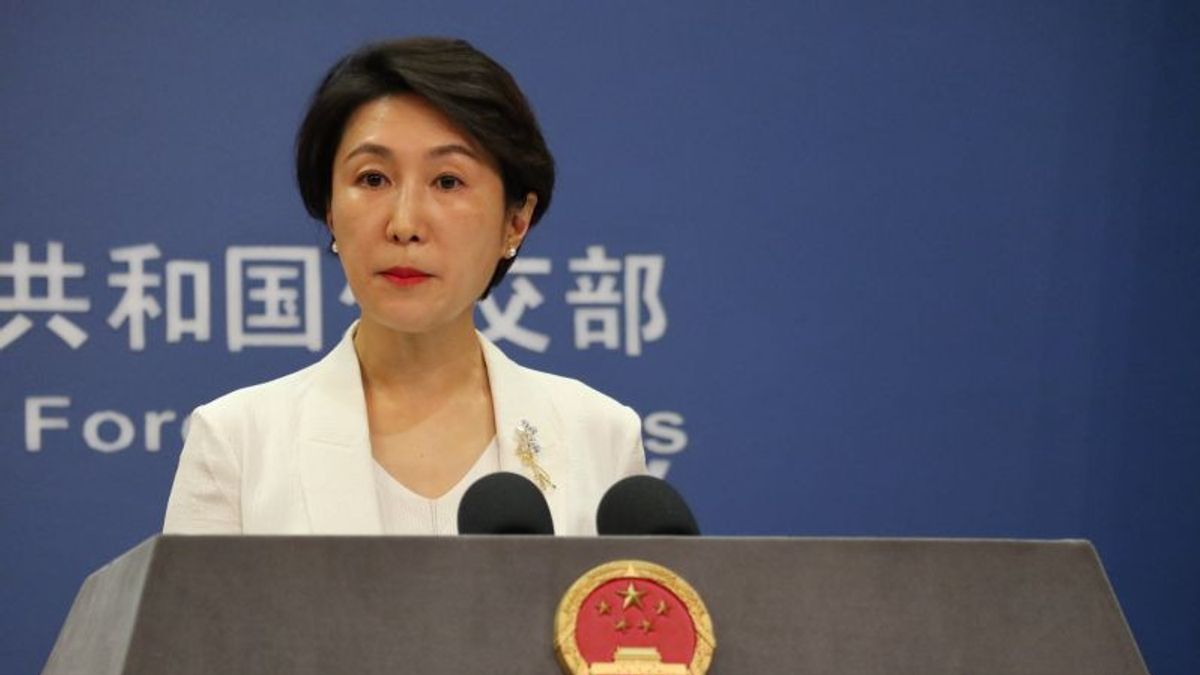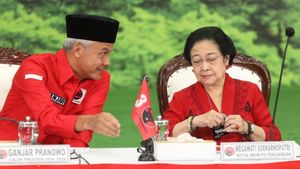JAKARTA - China has criticized the joint statements of leaders of the United States, Japan, and the Philippines as a result of the three countries Summit which is considered to trigger the formation of certain blocks.
"China strongly opposes the political practices of the blocs carried out by these countries. We firmly oppose any actions that trigger and escalate tensions and harm the security and strategic interests of other countries," said Chinese Foreign Ministry spokesman Mao Ning when delivering a statement to the media in Beijing. April 12.
The trilateral meeting between the US, Japan and the Philippines for the first time was held in Washington, USA on Thursday (11/4) and was attended by US President Joe Biden, Japanese Prime Minister Fumio Kishida and Philippine President Ferdinand Marcos Jr.
In a joint statement, the three leaders said the three represented three maritime democracies in the Indo-Pacific with a commitment to keep the Indo-Pacific region free, open, interconnected, prosperous, safe and inclusive.
The statement also expressed concern over the so-called dangerous and aggressive behavior of China in South China's Lau.
The three are concerned about the militarization of the reclamation and maritime claims in southern China's Lau as well as efforts to disrupt the exponent of offshore resources of other countries.
The three supported the decision of the arbitration court on June 12, 2016, which designated the Philippines' exclusive zone but was opposed by China, so that the US and Jepan would continue to support the increase in the capacity of the Philippine coast guard, including by providing 12 Philippine coast guard vessels and five ships and joint training plans with coast guard from three countries.
"Japan and the Philippines have the right to develop normal relations with other countries, but they should not confront blocks in the region, let alone engage in trilateral cooperation at the expense of the interests of other countries," said Mao Ning.
Mao Ning emphasized that the issue of Taiwan is purely China's internal affairs.
"Solving the Taiwan issue is China's own business and no one can interfere. The biggest threat to the current peace across the Taiwan Strait is the separatist activity of the 'Taiwan independence' force and external cooperation and support for them," said Mao Ning.
If the relevant countries really care about peace and stability across the Strait and want the world to be safe and prosperous, according to Mao Ning, the three countries must uphold the principle of "one China" and firmly oppose separatist activities "Taiwan independence" and support China's reunification.
Mao Ning also emphasized that China has non-negotiable sovereignty over the coral islands called "Nanhai Zhudao" in the South China Sea, consisting of Dongsha Qundao, Xisha Qundao, Zhongsha Qundao and Nansha Qundao and the surrounding waters.
"Our activities in the East China Sea and South China Sea are legitimate, justified and unsurprised. China cannot accept baseless accusations from these countries and defame us. China does not accept an illegal arbitration decision in the South China Sea or any unilateral action based on the ruling," explained Mao Ning.
Situasi di Laut China Timur dan Laut China Selatan, ungkap Mao Nnting secara umum stabil namun ada negara-negara tertentu mencari dukungan dari negara di luar kawasan karena mereka melanggar kedaulatan dan hak China serta melakukan provokasi di laut.
"What they are doing has increased tensions. Countries outside the region continue to ignite fire and spark confrontation. This seems clear. Let me emphasize once again that China will firmly safeguard its territorial sovereignty and rights as well as our maritime interests," said Mao Ning.
SEE ALSO:
In particular against Japan, Mao Ning called Japan's militaristic past, marked by devastating wars and aggression, prompting Japan to seriously rethink the history of its aggression and respect the concerns of neighboring Asian countries and stop exaggerated the security threats in the region to find reasons for making breakthroughs to use its military power.
As for the US, Mao Ning said the US still has a Cold War mentality and often threatens other countries with its bilateral alliance agreements.
"This action violates the UN Charter and undermines regional stability. China will never falter in its commitment to upholding territorial sovereignty and its maritime interests by continuing to work closely with regional countries to maintain peace and stability in the South China Sea," said Mao Ning.
Based on the trilateral summit, the US, Japan and the Philippines plan to conduct maritime training around Japan by 2025.
The English, Chinese, Japanese, Arabic, and French versions are automatically generated by the AI. So there may still be inaccuracies in translating, please always see Indonesian as our main language. (system supported by DigitalSiber.id)

















